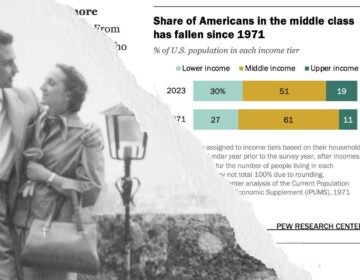New Jersey Assembly to consider increasing tax-break oversight
Consider the tax incentive: The government doesn’t hand over a dime, but the tax breaks for businesses come out of the state’s bottom line.
New Jersey’s Assembly will consider whether to strengthen the state’s reporting requirements for tax-incentive programs.
The bill in question (A-2007) asks the state to lay out an expanded version of a budgetlike accounting document of foregone revenue, called a “tax expenditures report.” This tool has been used by other state governments to clarify the exemption programs offered throughout complicated tax codes.
The measure headed for the Assembly floor Thursday would also require data to show how well the breaks work at generating growth in the economy.
Assemblyman Daniel Benson, D-Mercer, is a co-sponsor.
“I think over the last two years, and for many years, when we talk about tax incentives, we really are not looking at them as a broader picture, the same way we do with actual appropriations,” Benson said.
Few policymakers argue against all tax breaks. In the best cases, they can be valuable tools to attract business activity, but the effectiveness of programs is notoriously tough to measure.
The bill’s three sponsors in the Assembly are all Democrats.
Republican Gov. Chris Christie has approved more than $1.5 billion in tax exemptions since taking office, a record for just a portion of a four-year term.
The bill would also set an automatic expiration date for every incentive program, so officials would evaluate them before moving to reauthorize them.
New Jersey Policy Perspective, which was instrumental in passage of the original law this measure would modify, has signed on in support of A-2007 for providing greater accountability. Gordon MacInnes, NJPP president, submitted written testimony, arguing, “It’s important that we keep a close eye on this alternative form of spending, known as a tax expenditure, in order to confirm that it is succeeding in its goal(s).”
A statute passed under former Gov. Jon Corzine called for assembling an even more detailed annual report, called a unified economic development budget. This document would compile tax breaks and direct spending by the government side-by-side. NJPP says to date, that document has never been produced.
The organization says reports which break down subsidies by receiving companies provide the greatest level of transparency.
Update: May 25, 2012, 10 a.m.
Oregon has led the pack in using sunset clauses for certain incentives, but NJPP says New Jersey would become the first state in the country to enact a universal cut-off.
The bill was passed by the Assembly on Thursday with 47 supporting and 31 opposed. The same text has been referred to committee in the Senate.
WHYY is your source for fact-based, in-depth journalism and information. As a nonprofit organization, we rely on financial support from readers like you. Please give today.




